- Learning time
- 20 minutes
- First play time
- 45 minutes
Splendor Duel
Designed by: Bruno Cathala,Marc André
Splendor Duel is a two-player race – of sorts – to the finish, with first over the line winning. Where that line lies is a moveable feast: there are three ways to win.
Players are gathering gem cards of various colours, many of which score points. You can win by collecting ten points in the same coloured gems, by collecting twenty points across all your gems, or ten of the crowns that also appear on some cards.
Duel has a kind of abstract nature to it. On your turn you’ve three options: you can collect gem tokens from a shared board by taking up to three adjacent gems in a row (horizontally, vertically or diagonally). Or you can snag a single gold token, which functions as a wild: any gem. Or you can cash in your gathered tokens to buy the aforementioned gem cards. Not only do the gem cards give the possibility of points, or crowns, or one-off benefits such as a free extra turn. Each gem card also functions as a permanent gem in your supply for further purchases: if I’ve gathered four red gem cards, say, I can ‘spend’ up to four red gems without needing any red tokens, or losing any of my cards. In this way, Duel ramps up quickly from small I’ll take a gold turns into a wealth of options in front of you, and the challenge is about being shrewd enough to spot the best move from an array of them.
There are a couple of extra wrinkles to consider. The board of tokens is running out, so you can choose to refill it with spent tokens before you take some: if you do, your opponent gets a scroll they can spend on their turn to take any token from the board (as well as their standard turn). And collecting three crowns allows you to take a
The guru's verdict
-
Take That!
Take That!
It's not the game's defining feature, but it's not absent either. There are ways to meddle.
-
Fidget Factor!
Fidget Factor!
Low. If there are slight lulls for computation, it'll be your turn next.
-
Brain Burn!
Brain Burn!
A veneer of long-term strategy but a smorgasboard of tactical options. Both players will generate momentum and it's about advancing your own whilst - you hope - hampering your opponent's.
-
Again Again!
Again Again!
Cards, tokens all come out randomly. While the game doesn't change significantly in its' overall flavour, each play has more than enough to be engaging.

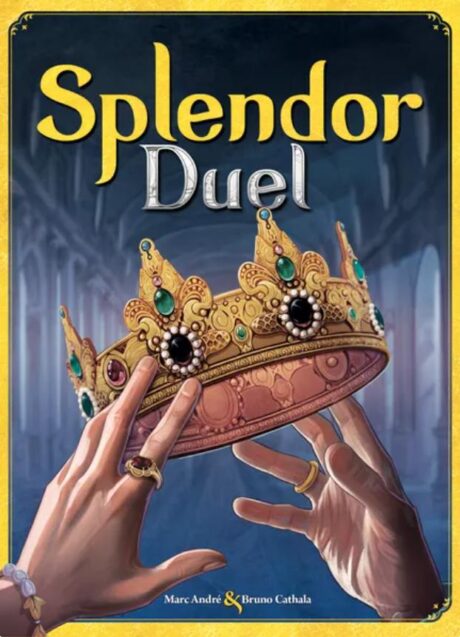
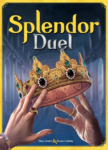
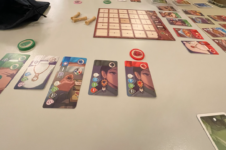
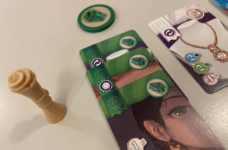
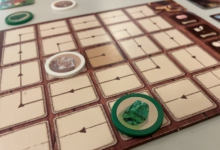
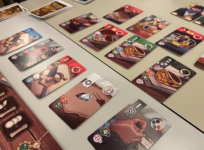


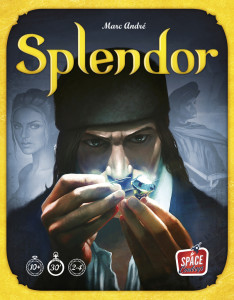
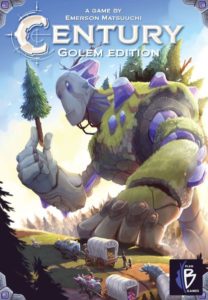
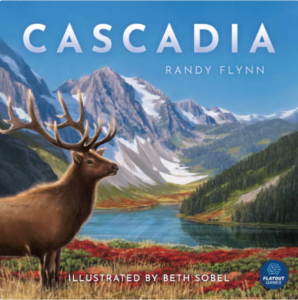
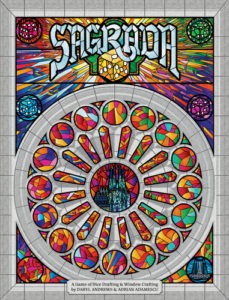
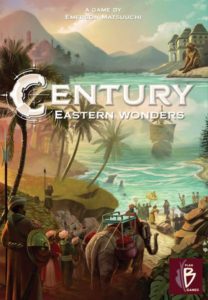
Sam says
The original Splendor allows for more players (up to 4) and is a more accessible game, very easily understood and played quickly. Duel has a little more heft to it: not a complicated game, really, but certainly gives you more to mull over than its predecessor's basic rhythm of converting things into other things. I found Splendor fine but unexciting. The theme here is no more relevant really - which is to say, not at all! - but the gameplay is much more engaging. For a start the multiple ways to win adds a layer of strategy beyond simply making the obvious move. Then what might at first seem a relatively non-interactive game offers ways to stymie each other: not just in the stealing of tokens (one particular card reward) or the taking of cards your opponent was gearing up for - but also the taking of tokens from the board and how that affects y9our opponent's options. It's a rather canny thing that is much deeper than it first appears.